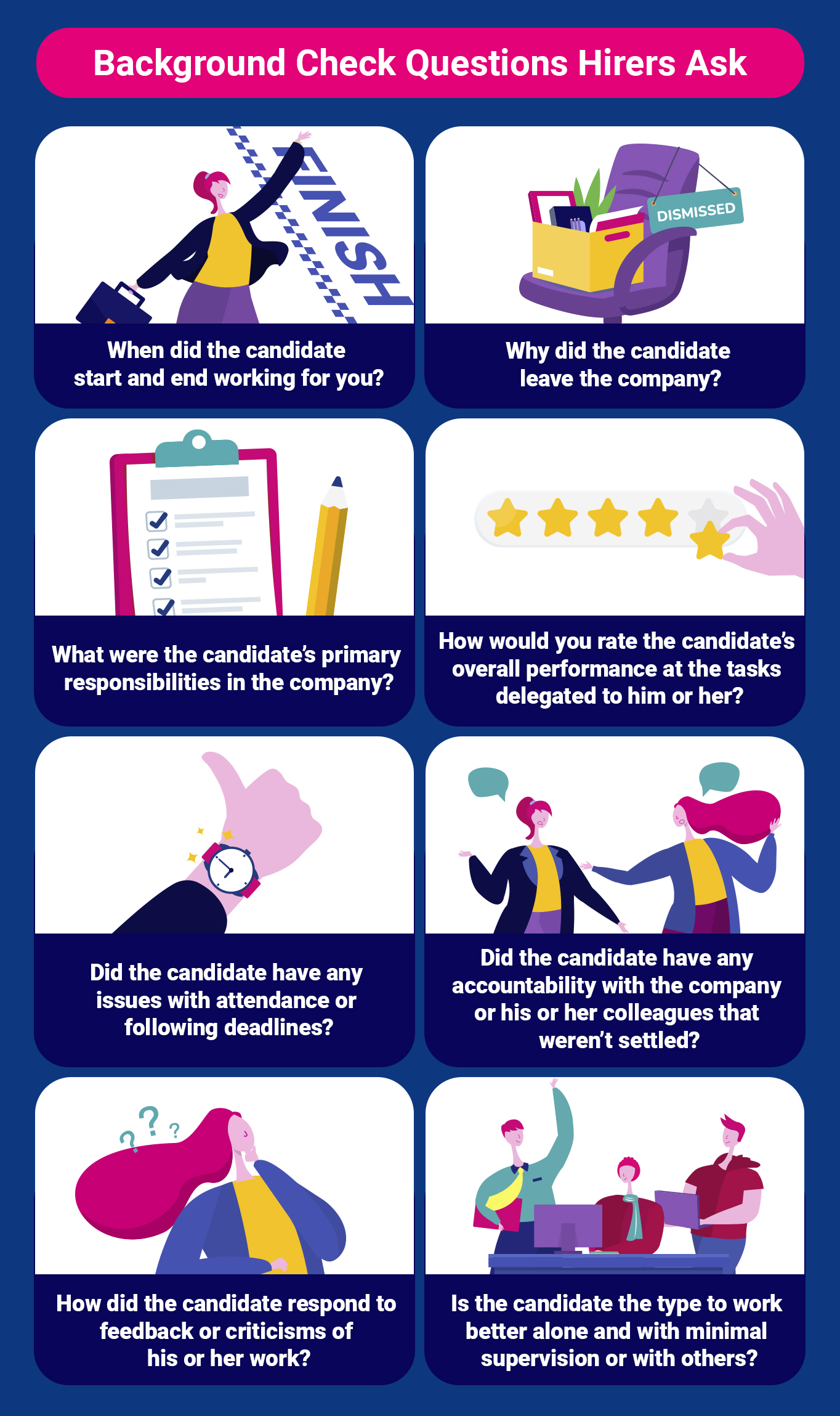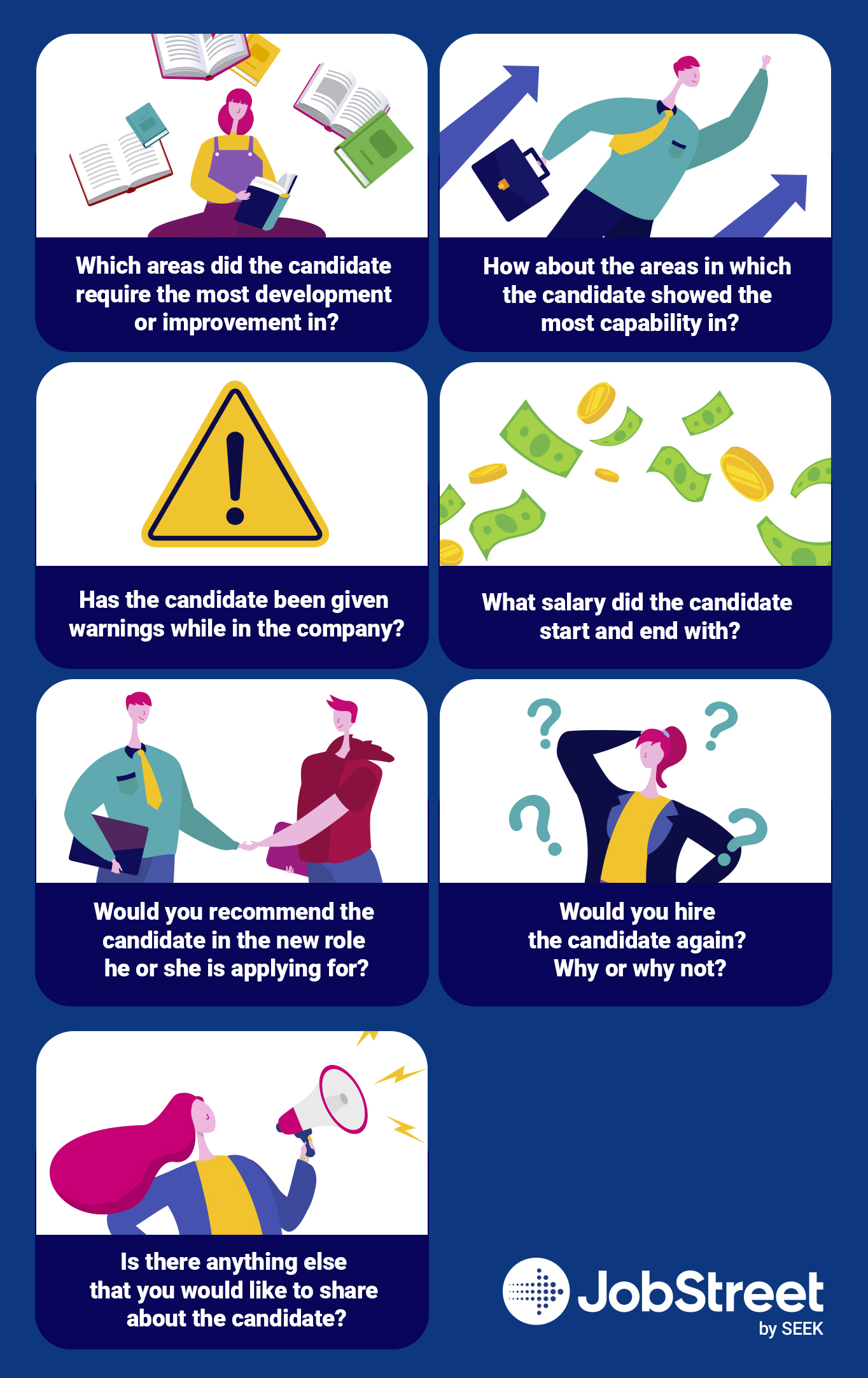15 Important Questions Hirers Ask During a Background Check For Employment
At some point in a typical job application, hirers go through a background check for employment to know more about candidates. After some initial profile assessments or interviews, employers may be wondering: Have you been telling the truth about your identity? Were there inconsistencies in your professional history that they forgot to ask? Are you really the right person to hire for the job at hand?
The answers to these questions will only be supplied through successful further review by the employer or hirer. This is usually known as a background or reference check.
What is a background check?
Background or reference checks are a crucial phase of the hiring journey. It’s where hirers find out more about an applicant’s capabilities using third-party sources or third-person points of view. May they be your former colleagues, bosses, or even institutions. In the brief opportunity your potential employer speaks to these sources, they should be able to tell whether you are fit to work for their company.
Employers and hirers normally perform background checks on all applicants, no matter the position they are vying for. As much as possible, the information they collect in the process must also be able to justify the needs of the pertinent job. This is to avoid potential biases or discrimination by personal beliefs or affiliations against you or your fellow candidates.
Other than helping employers select the best candidates for the job, background checks are a great way to build and protect their company. Hiring employees with bad records, for example, might make the workplace and its services prone to such things as rash behavior and fraudulent activities. Meanwhile, when employers choose someone with good background information, they will feel more secure as a business.
Benefits of background checks for employment for applicants
As a candidate for a job, background checks are also a great way to know more about the company you are applying to. Through the information they have collected and raised, you will know whether the company has followed ethical procedures to gather data about you. Or even how they treat other businesses or individuals in the process of doing so.
Above all, if you prove to be a strong contender for a job, background checks can help you stand out from other candidates. In a good way if your profile is clear of discrepancies and if you have left a good impression on those you have been affiliated with. Bad if you have unresolved records or relationships with the latter, among other things. In the end, these conditions can be the deciding factor on whether hirers will or will not accept you.
So, what are some of these background check questions that may come up in the course of your application?
What can hirers learn from doing background checks?
Given the right questions, hirers can obtain information about you that won’t only help them in hiring. Upon employment, they can also use such knowledge for purposes of further evaluation or even promotion. While how they ask the questions may differ from time to time, specific details in the following areas will often prove handy for them.
- Personal - Before anything else, they will want to make sure that the basic information that you provided is true and valid. It also needs to be consistent with the application requirements you have submitted. By basic information, meaning your complete name, address, and contact number.
- Education - Sometimes, it’s not enough that hirers know where someone graduated from. When needed, they can verify more educational information that they want, including diploma and transcript of records (TOR) content, by directly contacting your school’s administration.
- Professional - If you have worked for someone else previously, hirers can easily ask the above-listed questions to learn more about you as an employee. If you have specified former bosses or colleagues as references, they’ll be able to come up with a more comprehensive impression of you guide the hiring.
- Criminal - There’s a reason why most, if not all, companies require applicants to submit their National Bureau of Investigation or NBI Clearance. Through this document, hirers will know if you have past or pending criminal accountabilities that could serve as a warning on whether to hire you or not.
- Financial - Your credit history can tell so much about how you will be as an employee, particularly on the matter of financial responsibility. Do you have any pending debts? Do you often pay your bills on time? This should convince employers that you are not suitable for the job after all.
More background check questions that may come up
It may seem like alotof data to collect from a single candidate in the course of your application. Thus, most employers would only go as far as checking personal, educational, and professional information. Depending on the company, criminal and financial checks only emerge at the latter end of hiring, when hirers are making their final decision about you.
If employers are unhappy with the information they have collected, they can always follow up with a few more questions. Provided, of course, that they are relevant to previous discussions about you. It will also still be subject to approval by the other party given their availability. And, how much data they are allowed to disclose. Below are those questions you can anticipate:
- Was the candidate promoted during his time in the company?
- How easy was it for the candidate to comprehend instructions or directions?
- Did the candidate show strong communication skills?
- What behaviors of the candidate would usually affect his or her performance?
- Does the candidate work well under pressure or stress?
- Do you have suggestions on how to best manage or work with the candidate?
How you can do your part in background checks
Background checks usually transpire between hirers and third-party individuals or institutions. Nonetheless, jobseekers play a crucial role in the process to make sure they also benefit from these checks, rather than let them ruin your chances for employment. The following are some of the things you can do:
- Choose your references wisely. Aside from former bosses and colleagues, some of the best ones include professors or college mentors, organization leaders, and even good friends! Remember, who you select can also reflect on employers’ impression of you.
- Be honest with what you write in your resume or say in an interview. Never even attempt at lying or coming up with fake documents.
- Before leaving your most recent employer, ensure that you have maintained good relations with your coworkers.
- Conduct your own background check on your potential employer. This is to make sure you and your references can trust them with any data they will collect from you. Basically, protect your data privacy as a jobseeker.
Do you want to be seen by more employers? Create or update your JobStreet profile now. For more expert tips on how to successfully land your first or next job, visit Career Advice.


